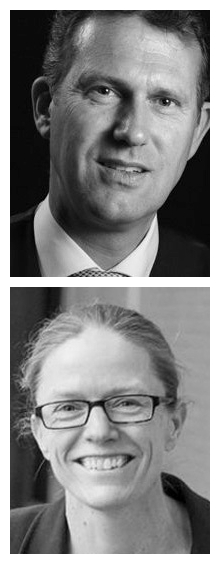NESSC-scientists awarded prestigious ERC-grant
NESSC-researchers Mike Jetten and Caroline Slomp receive a prestigious ERC Synergy grant of €7.6 million. With the EU research grant they will investigate how micro-organism remove harmful methane and ammonium from coastal sediments. By combining their expertise, the scientists expect a breakthrough in the knowledge about microbes.

Decomposition of organic matter releases methane and ammonium. Methane is a strong greenhouse gas and ammonium is toxic. These toxic substances are removed by microbes in coastal sediments, however, the process is not fully understood. This makes it difficult to predict how the sediments react to human-induced changes such as global warming and eutrophication. The ERC Synergy research team will study how microbes remove methane and ammonium in the sediments, and the impact on our environment.
Prof Mike Jetten, microbiologist at Radboud University, and prof Caroline Slomp, geochemist at Utrecht University, combine their expertise in this project. Using their ERC Synergy grant they will identify the chemical reactions and microbes responsible for the removal of methane and ammonium. By combining field work, lab experiments and state of the art biogeochemical computer modeling, the researchers expect breakthroughs in the understanding of the role of microbes in modulating Earth’s biogeochemistry.
Interdisciplinary cooperation
The ERC Synergy grants are the largest and most competitive subsidies of the European Research Council (ERC). Synergy grants are intended for ambitious scientific research with interdisciplinary cooperation between scientists. It is the second time that researchers from Universiteit Utrecht have been awarded an ERC Synergy grant.

